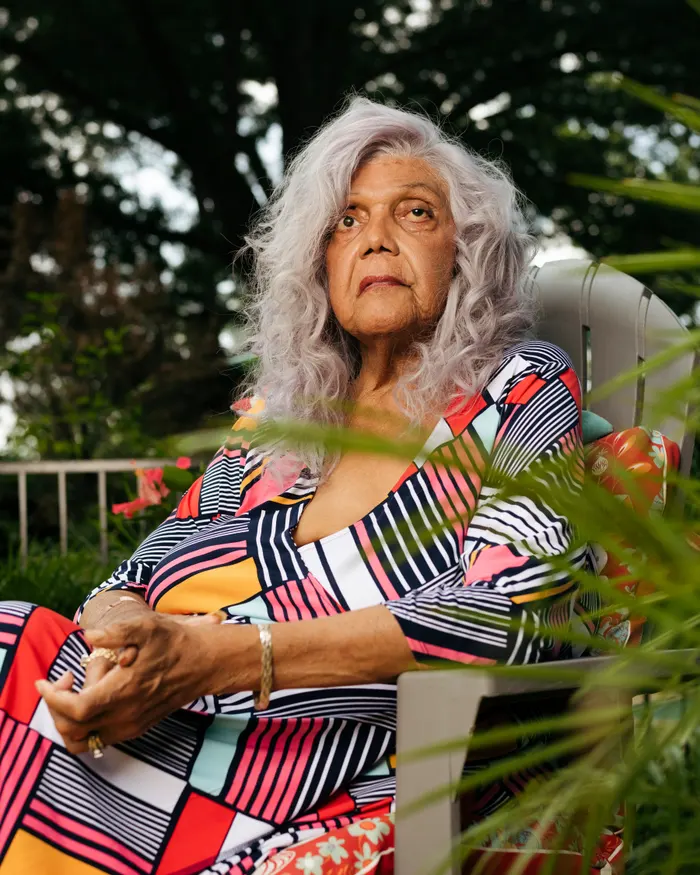Uplifting Our Ancestors & Three Queer Black Social Justice Icons: A Black History Month Reflection by Jaylon Tasby
- Feb 14, 2024
- 4 min read
In this sacred moment of Black History Month, I am drawn to reflect on the indomitable spirit of my ancestors, whose strength and resilience continue to reverberate through time and space. As a Black Queer man, I am deeply aware of the powerful energy that flows within me, a legacy of those who came before me.

I believe that the energy of our ancestors never truly fades away; instead, it evolves and manifests itself in the world around us. It is the same energy that fueled their battles against oppression and injustice that lives on within us today, inspiring us to continue the fight for social justice, equality, and equity.
This ancestral energy is what propels me to advocate for our queer youth, to stand alongside our Black youth, and to amplify their voices in a world that often seeks to silence them. It is a force that moves within me, guiding my actions and shaping my understanding of my place in the world.
As I reflect on the legacy of my ancestors during this Black History Month, I am reminded of the responsibility I carry to honor their sacrifices and to continue their work. It is a sacred duty, one that I embrace with humility and gratitude, knowing that I am part of a lineage of resilience, strength, and unwavering determination.
May we all be inspired by the energy of our ancestors as we strive to create a world that is more just, more inclusive, and more compassionate for future (and current) generations.
As we continue through this Black History Month, we embark on a journey that transcends the conventional narratives, venturing into the lives of remarkable individuals whose stories have often been relegated to the sidelines; nevertheless, their energies alongside the energy of our ancestors, continues to pave the way for us all. In this blogpost we shine a spotlight on some of the unsung heroes and heroines—queer Black icons whose courage and resilience have shaped history in profound ways. These individuals not only navigated the complexities of racial injustice but also fearlessly expressed their authentic selves in the face of societal norms. Join us as we uncover the tales of just a few of those who dared to be different, contributing to the medley of experiences that make up the queer Black narrative.

Bayard Rustin (born March 17, 1912 — died August 24, 1987) was an American civil rights activist who was an adviser to Martin Luther King, Jr., and who was the main organizer of the March on Washington in 1963. Rustin became a foe of racial segregation and a lifelong believer in pacifist agitation. He worked for the Fellowship of Reconciliation, a nondenominational religious organization, from 1941 to 1953, and he organized the New York branch of another reformist group, the Congress on Racial Equality, in 1941. While his sexual orientation resulted in him taking a less public role, he was hugely influential within the civil rights movement. In the mid-1950s Rustin became a close adviser to the civil rights leader Martin Luther King, Jr., and he was the principal organizer of King’s Southern Christian Leadership Conference. Rustin later was the chief architect of the March on Washington (August 1963), a massive demonstration to rally support for civil rights legislation that was pending in Congress. (Britannica.com)

Barbara Smith (born November 16, 1946 — present) is a Black feminist pioneer, lesbian, activist, author, lecturer, and publisher. Born in Cleveland, Ohio, she and her twin sister, Beverly, began participating in civil rights protests in the 1960s. In 1974 Smith co-founded the Combahee River Collective in Boston, Massachusetts, and in 1977, she co-authored the Combahee River Collective Statement, with Beverly, and Demita Frazier. The Combahee River Collective Statement was created to address the particular task to further the development of integrated analysis and practice based upon the fact that the major systems of oppression are interlocking. This movement and statement addressed not only feminism, but specifically African American feminism and politics. Barbara and her colleagues in the Combahee River Collective are credited with originating the term “identity politics,” defining it as an inclusive political analysis for contesting the interlocking oppressions of race, gender, class, and sexuality. Now widely referred to as “intersectionality.” (barbarasmithaintgonna.com and mtholyoke.edu)

Miss Major Griffin-Gracy (born October 25, 1940 — present) is a Black, transgender activist who has fought for over fifty years for her trans/gender nonconforming community. Major is a veteran of the infamous Stonewall Riots, a former sex worker, and a survivor of Dannemora Prison and Bellevue Hospital’s “queen tank.” Her global legacy of activism is rooted in her own experiences, and she continues her work to uplift transgender women of color, particularly those who have survived incarceration and police brutality. Miss Major is formerly the long-time executive director of the San Francisco-based Transgender Gender-Variant Intersex Justice Project (TGIJP), which advocates for Trans women of color in and outside of prison. She is the recipient of countless awards, proclamations, certificates, and public accolades for more than 50 years of a legendary and pioneering career in social justice and activism. Most notably, she is also the subject of a new award-winning documentary feature film currently showing around the country and in foreign film markets – “MAJOR!” (astraeafoundation.org and missmajor.net)








Comments